Find Help
More Items From Ergsy search
-

Fallsafe - Put the patient first. Preventing falls in Hospital.
Relevance: 100%
-

Falls Prevention video for patients attending hospital
Relevance: 99%
-
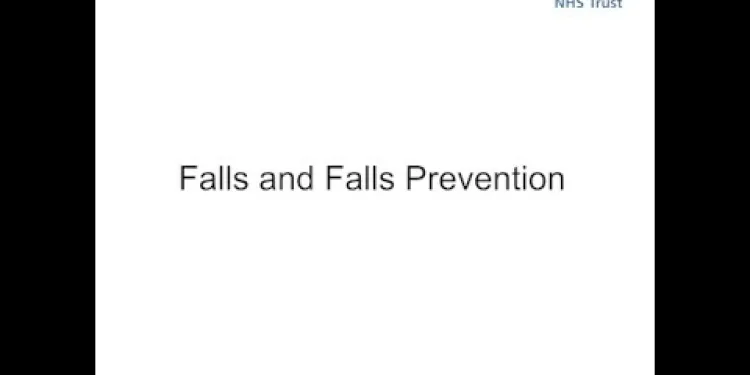
Falls and Falls Prevention
Relevance: 72%
-
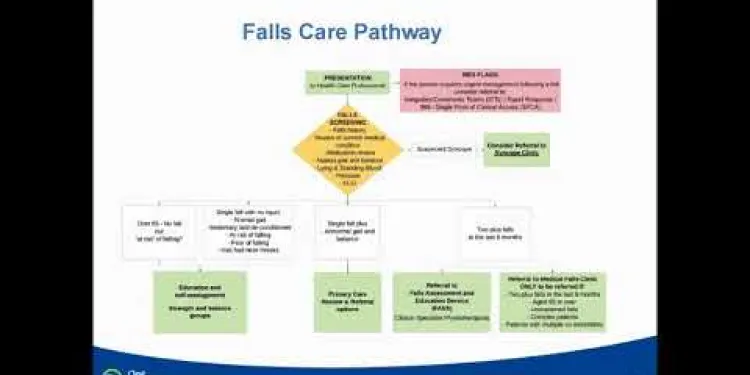
Falls Prevention Podcast
Relevance: 62%
-

Falls Prevention - strength and balance exercises
Relevance: 53%
-

Delirium: A Patient Story at Leicester's Hospitals
Relevance: 51%
-

How can healthcare providers prevent the spread of flesh-eating bacteria in hospitals?
Relevance: 48%
-
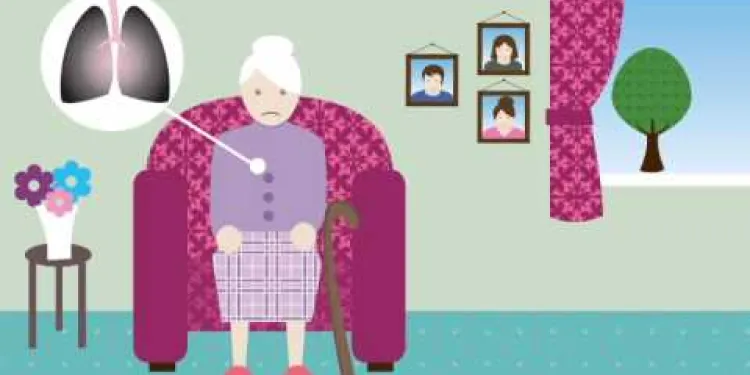
Dorothy's Story (Falls/Chest Infection)
Relevance: 45%
-
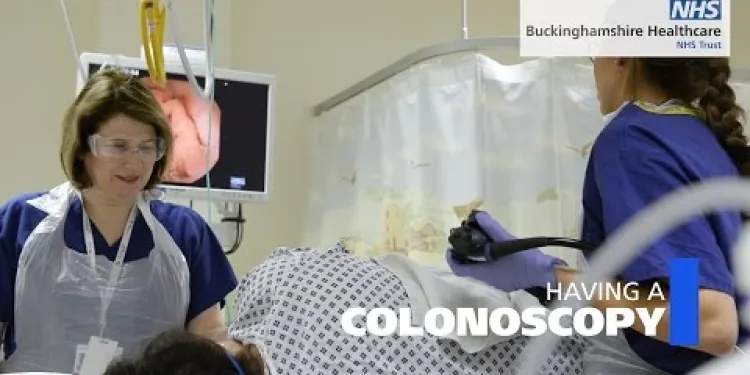
Having a colonoscopy in hospital - Patient Guide
Relevance: 43%
-

Pressure ulcer prevention: A guide for patients, carers and healthcare professionals
Relevance: 37%
-

Will language barriers be an issue in EU hospitals?
Relevance: 37%
-
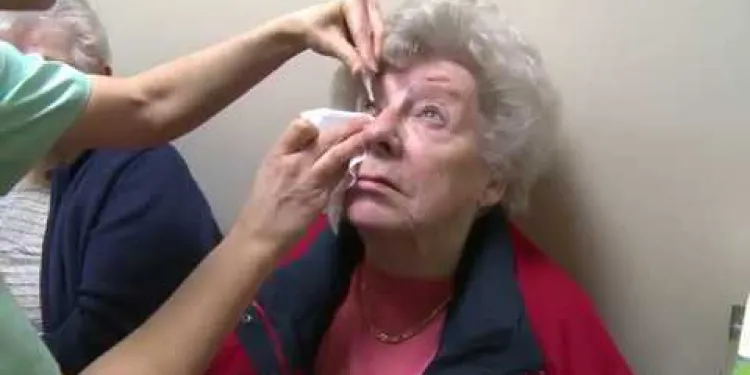
Eye Injections at Royal Bournemouth Hospital
Relevance: 37%
-

Can virtual wards reduce hospital overcrowding?
Relevance: 36%
-
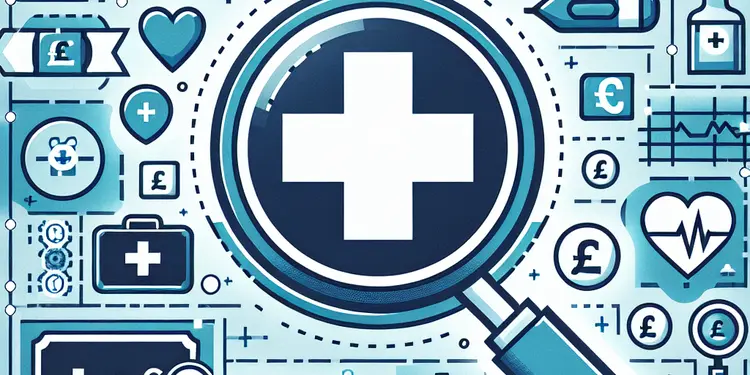
How do I find a suitable hospital or clinic for my treatment?
Relevance: 36%
-
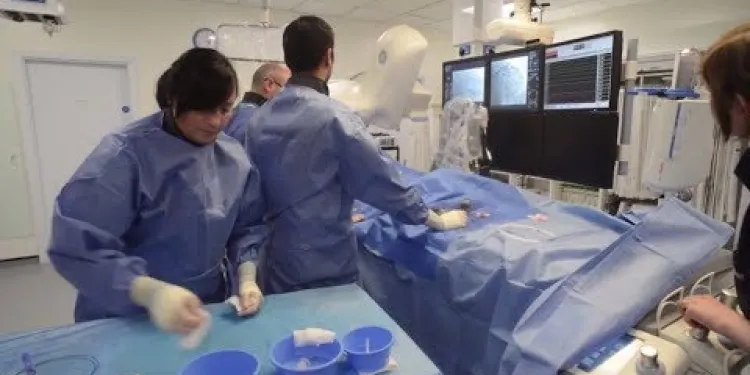
Heart attack care - Raigmore Hospital Inverness, NHS Highland
Relevance: 35%
-

Do all patients need medication to prevent heart attacks and strokes?
Relevance: 35%
-

UK House Prices Fall for Third Consecutive Month
Relevance: 34%
-

How do virtual wards improve patient outcomes?
Relevance: 34%
-

Does the NHS offer an online hospital for prostate cancer?
Relevance: 34%
-

Are waiting times for operations the same across all hospitals?
Relevance: 34%
-

Do private hospitals have shorter waiting times for operations?
Relevance: 34%
-

Are virtual wards suitable for elderly patients?
Relevance: 34%
-

Eye Injections at Royal Bournemouth Hospital
Relevance: 33%
-
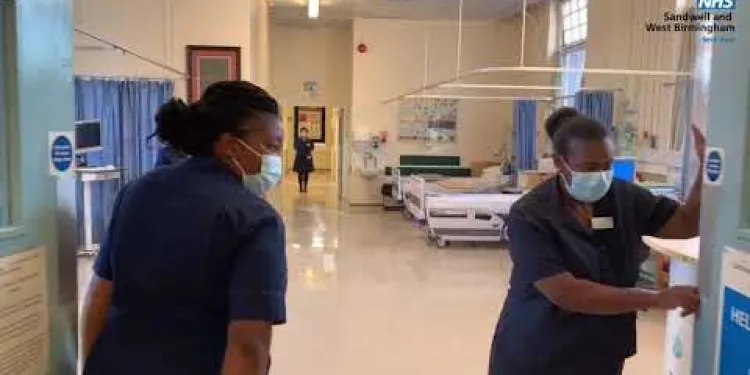
Tour of the Sickle Cell and Thalassaemia Unit at City Hospital | SCaT
Relevance: 33%
-

Having an operation in Oxford Children's Hospital with YiPpEe
Relevance: 32%
-

Is AI technology in lung cancer detection widely accepted by hospitals?
Relevance: 32%
-

Does the NHS offer an online hospital for prostate cancer?
Relevance: 32%
-
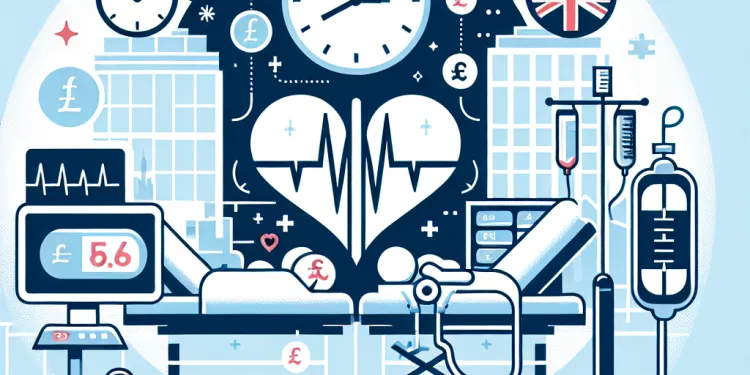
How long will I stay in hospital after a C-section?
Relevance: 32%
-
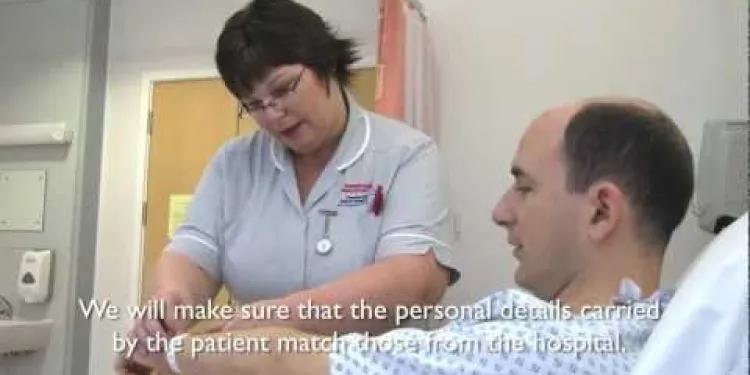
MRSA Screening at Chesterfield Royal Hospital NHS Foundation Trust
Relevance: 32%
-
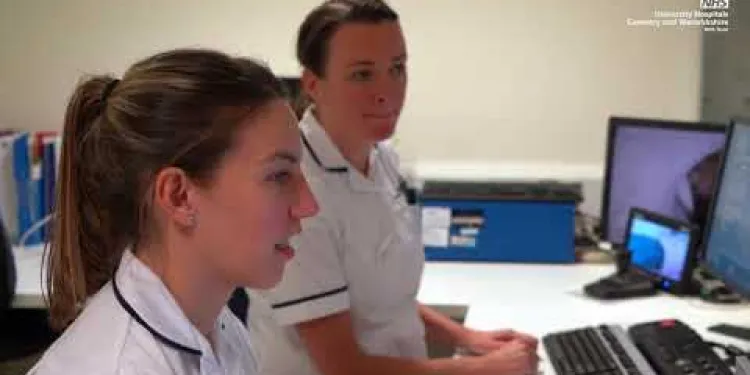
Radiotherapy Services at University Hospital
Relevance: 32%
-

Can I shorten my waiting time by choosing a different hospital?
Relevance: 32%
-

Glaucoma: about the Ophthalmology Team at University Hospitals Birmingham NHS Foundation Trust
Relevance: 31%
-
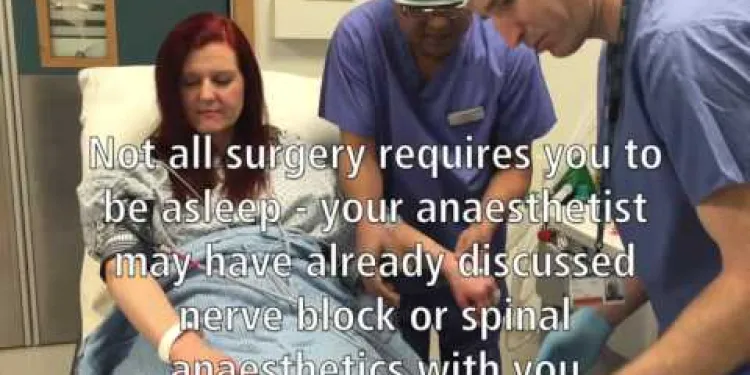
Your Operation at East Surrey Hospital
Relevance: 31%
-
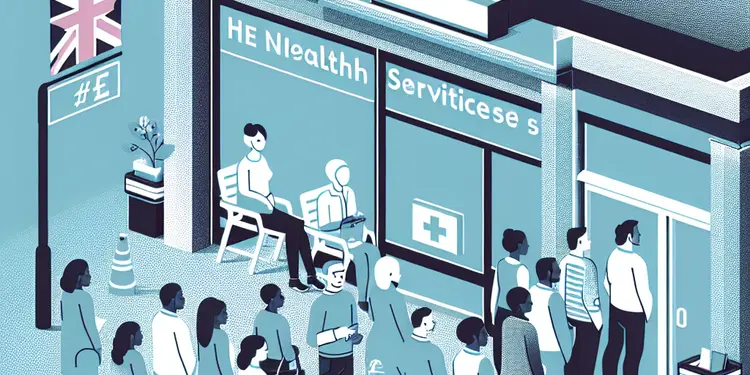
How can I find current waiting times for operations in my local hospital?
Relevance: 31%
-

Infliximab infusion (Remicade) for Crohns Disease at Addenbrookes NHS hospital
Relevance: 30%
-

Why do interest rates rise and fall?
Relevance: 30%
-

A guide to the new Endoscopy Suite at Chesterfield Royal Hospital NHS Foundation Trust
Relevance: 30%
-
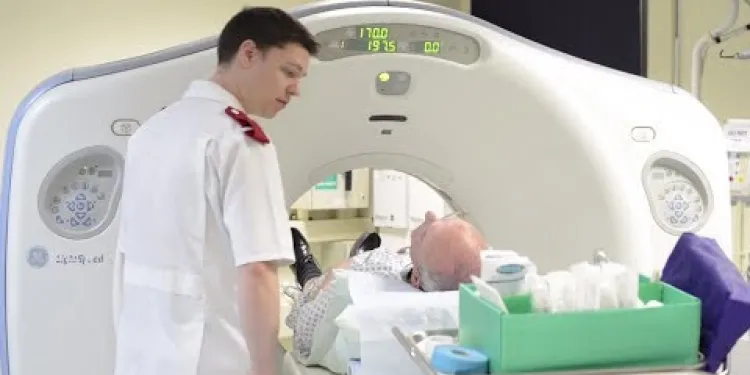
Having a CT scan in Hospital - What's it like having a CT scan at Bedford Hospital?
Relevance: 29%
-
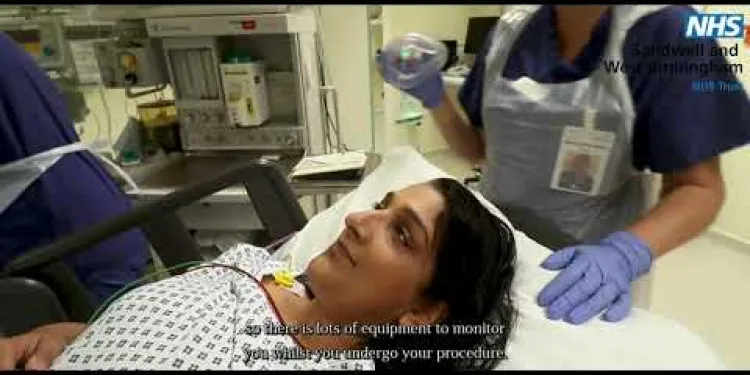
What to expect when visiting our hospitals for surgery | Theatres
Relevance: 29%
-

Exercise in patients with a neuropathy
Relevance: 29%
Falls Prevention Video for Hospital Patients
Introduction
Welcome to our falls prevention video designed specifically for patients attending hospitals in the United Kingdom. Falls are a significant concern, especially for older adults or those with medical conditions that affect balance and mobility. This informative video aims to educate you on how to reduce the risk of falls during your hospital stay.
Why Falls Prevention is Important
Falls can lead to serious injuries such as fractures, head trauma, and other complications. Preventing falls not only enhances patient safety but also promotes faster recovery and reduces hospital stay durations. Understanding the risk factors and implementing prevention strategies is crucial for maintaining your well-being.
Identifying Risk Factors
Several factors can increase your risk of falling:
- Age-related changes in vision, balance, and muscle strength
- Certain medications that may cause dizziness or drowsiness
- Chronic conditions like arthritis, diabetes, or neurological disorders
- Environmental hazards such as slippery floors or poor lighting
Effective Prevention Strategies
Here are some practical strategies to help prevent falls:
- Use Mobility Aids: Utilize walking sticks, frames, or other aids as recommended by your healthcare provider.
- Stay Active: Engage in exercises that improve strength and balance, as guided by your physiotherapist.
- Medication Management: Review your medications regularly with your doctor to minimize side effects that could affect your stability.
- Environmental Modifications: Ensure your hospital room is free from tripping hazards, and always use non-slip footwear.
Conclusion
Preventing falls is a collaborative effort between patients, healthcare providers, and caregivers. By staying informed and proactive, you can create a safer hospital environment. Please watch our detailed video for more comprehensive tips and demonstrations on falls prevention. Your safety is our priority.
Falls Prevention Video for Hospital Patients
Introduction
Welcome! This video is about stopping falls in hospitals in the UK. Falls can be dangerous, especially for older people or those who may have trouble keeping their balance. This video will help you learn how to stay safe while you are in the hospital.
Why Falls Prevention is Important
Falls can cause bad injuries like broken bones or head bumps. If we can stop falls, you will be safer and can get better quicker. Knowing what causes falls and how to stop them helps keep you healthy.
Identifying Risk Factors
Here are reasons why someone might fall:
- Getting older can change vision, balance, and muscle strength.
- Some medicines might make you feel dizzy or sleepy.
- Ongoing health issues like arthritis or diabetes.
- Slippery floors or not enough light in the room.
Effective Prevention Strategies
Here are some ways to prevent falls:
- Use Mobility Aids: Use walking sticks or frames if your doctor says you need them.
- Stay Active: Do exercises that help with strength and balance, as your physiotherapist suggests.
- Medication Management: Talk with your doctor about your medicines to avoid side effects that may cause falls.
- Environmental Modifications: Keep your hospital room clear of things you could trip over, and wear shoes that don’t slip.
Conclusion
Preventing falls needs teamwork from patients, doctors, and caregivers. By learning and acting, you can keep safe in the hospital. Watch our video for more tips on staying safe from falls. Your safety is what matters most to us.
Frequently Asked Questions
What are the common causes of falls in hospitals?
Common causes of falls in hospitals include slippery floors, poor lighting, obstacles in walkways, improper use of walking aids, and medication side effects.
How can I prevent falls while in the hospital?
To prevent falls, always ask for help when you need it, use walking aids if prescribed, keep personal items within reach, wear non-slip footwear, and follow your healthcare provider's advice.
What should I do if I feel dizzy or unsteady?
If you feel dizzy or unsteady, sit down immediately and call for assistance. Do not try to walk on your own until a healthcare professional has assessed you.
Why is it important to use the call bell system?
The call bell system is important because it allows you to quickly and easily request help from hospital staff when you need it, reducing the risk of falls.
What role do medications play in fall prevention?
Medications can affect your balance and coordination. It is important to discuss your medications with your healthcare provider to understand any side effects and ensure proper management.
How can proper footwear help prevent falls?
Proper footwear, such as non-slip socks or well-fitting shoes, provides better grip and stability, reducing the risk of slips and falls.
What environmental factors should I be aware of to prevent falls?
Be aware of environmental factors such as wet floors, cluttered walkways, poor lighting, and unsecured rugs. These hazards can increase the risk of falls.
Can bed rails help prevent falls?
Bed rails can help prevent falls for some patients, but they must be used correctly and safely. Discuss with your healthcare provider if bed rails are appropriate for you.
Why is it important to stay hydrated in the hospital?
Staying hydrated is important because dehydration can cause dizziness and confusion, increasing the risk of falls. Be sure to drink fluids regularly, as advised by your healthcare provider.
How can family members or carers assist in fall prevention?
Family members or carers can assist by helping you move safely, ensuring your environment is free of hazards, and reminding you to use your call bell for assistance.
What should I do if I witness someone else falling?
If you witness someone falling, do not try to lift them on your own. Call for hospital staff immediately and stay with the person to provide comfort and support.
Why is it important to keep personal items within reach?
Keeping personal items within reach reduces the need for you to stretch or move unnecessarily, which can help prevent falls.
Should I use walking aids while in hospital?
If prescribed by your healthcare provider, using walking aids like canes or walkers can provide added stability and help prevent falls.
How can the layout of my hospital room affect fall risk?
The layout of your hospital room can affect fall risk. Ensure there is a clear path to the bathroom, and remove any unnecessary furniture or obstacles that could cause tripping.
What exercises can help reduce my risk of falling?
Gentle exercises that improve strength and balance can help reduce fall risk. Consult your physiotherapist or healthcare provider for a tailored exercise program.
Why do people often fall in hospitals?
People can fall in hospitals for many reasons. Here are some common ones:
- Floors might be slippery.
- Lights might not be bright enough.
- There could be things in the way when walking.
- Walking aids, like canes or walkers, might not be used correctly.
- Medicine can sometimes make people feel dizzy or unsteady.
If you or someone you know is in the hospital, here are some tips to help stay safe:
- Wear shoes with grips to help with slippery floors.
- Make sure lights are on and bright enough to see clearly.
- Keep walkways clear of things that might trip someone.
- Ask for help to use walking aids the right way.
- Talk to a doctor or nurse about how medicine might affect balance.
How can I stop falls in the hospital?
Falls in the hospital can be scary. Here are some easy ways to stop falls:
- Use handrails in the bathroom and hallway. They help keep you steady.
- Wear non-slip socks or shoes. They help you walk safely.
- Ask for help when you need to get up. Nurses can help you move safely.
- Keep your call bell close. Use it to call a nurse if you need help.
- Make sure your room is not too dark. Lights help you see better.
These tips can help keep you safe in the hospital. Remember, it's okay to ask for help!
To stop falls, remember to:
- Ask for help when you need it
- Use walking sticks or frames if your doctor says you need them
- Keep things you use a lot close to you
- Wear shoes that don't slip
- Do what your doctor tells you
If you need help reading or understanding, ask someone you trust. You can also use tools like text-to-speech software or apps that explain things clearly.
What to Do If You Feel Dizzy or Unsteady
Sometimes, you might feel like the world is spinning or you can't stand up straight. This is called feeling dizzy or unsteady.
Here are some simple steps to help:
- Stop and sit down right away. This helps you stay safe.
- Take slow, deep breaths. This can help you feel better.
- Drink some water. Being thirsty can make you dizzy.
- If it does not get better, ask an adult for help.
You can use things like a walking stick to help you walk. Rely on a friend or family member for support.
If you feel dizzy or wobbly, sit down right away and ask for help. Don't try to walk by yourself until a doctor or nurse checks on you.
Why is it important to use the call bell system?
A call bell system helps people ask for help quickly. It is very important for keeping everyone safe and happy.
Here’s why using it is important:
- Call for Help: If you need something, like water or a nurse, you can press the bell to call for help.
- Feel Safe: Knowing you can call for help anytime makes you feel safe.
- Quick Help: The bell makes sure someone comes to help you fast.
Helpful Tips:
- Practice Using It: Try using the call bell so you know how it works.
- Ask Questions: If you're not sure how it works, ask someone to show you.
The call bell system is very important. It helps you quickly ask for help from hospital workers when you need it. This can stop you from falling down.
How can medicine help stop falls?
Medicines can make you feel wobbly or off-balance. It's important to talk to your doctor about your medicines. They can tell you if the medicines have side effects and help you manage them.
How can good shoes stop falls?
Wearing the right shoes or non-slip socks can help you stay safe. They stop you from slipping and falling.
How can I make my home safe to stop falling down?
Watch out for things around you. Wet floors can be slippery. Messy floors can make you trip. Poor lighting can make it hard to see where you are going. Rugs that are not stuck down can slide. These things can make you fall.
Do bed rails stop people from falling out of bed?
Bed rails can stop some people from falling out of bed. But we must use them the right way. Talk to your doctor to see if bed rails are good for you.
Why is it important to drink water in the hospital?
Drinking enough water is very important.
Here is why:
- Water helps your body work well.
- It helps you feel better and heal faster.
- It can stop you from feeling dizzy or tired.
Remember to sip water often! You can ask a nurse for help if you need it.
Drinking water is important. If you don't drink enough, you can feel dizzy or confused. This might make you fall. Drink water often. Ask your doctor how much water you should drink.
How can family members or carers help stop falls?
Family members and carers can help keep people safe from falls. They can:
- Make sure the home is safe. Remove loose rugs and keep floors clean.
- Help the person use things like handrails.
- Encourage the person to wear shoes with good grip.
- Help them keep a healthy routine. This means eating well, getting enough sleep, and exercising if they can.
- Talk to a doctor about medicines that might make the person feel dizzy.
Family and carers can also use pictures or stories to show how to do things safely. This makes it easier to understand.
Family and carers can help you stay safe. They can make sure there are no dangers around you. They can help you move safely. They can also remind you to use a call bell if you need help.
What should I do if I see someone fall?
If you see someone fall, here is what you can do:
- Stay calm and go to them.
- Ask them if they are okay.
- Do not move them if they might be hurt.
- Call for help if they need a doctor.
- Stay with them until help arrives.
It's good to have a phone to call someone for help. You can also ask others around you to help.
If you see someone fall, do not try to pick them up by yourself. Call for help from hospital staff right away. Stay with the person to make them feel better and give support.
Why should you keep your things close to you?
Keep your things close to you so you don't have to reach or move too much. This can help you stay safe and not fall down.
Can I use walking helpers in the hospital?
If you need help to walk, you can use walking helpers like canes or walkers in the hospital. Ask your nurse or doctor if you are not sure. They can help you find the right one.
You can also ask for help from family or friends. They can hold your hand or walk with you to keep you safe.
If your doctor gives you a walking stick or a walker, use it. It can help you stay steady and stop you from falling.
How does my hospital room layout affect the chance of falling?
The way your hospital room is set up can change how likely it is for someone to trip or fall.
Here are some things that can help:
- Make sure the floor is clear. Remove anything you can trip over.
- Put important things like the call button and water within easy reach.
- Keep the room well-lit so you can see clearly.
- Ask for help if you need to get out of bed.
Remember, you can ask hospital staff to help make your room safer.
Your hospital room should be safe. Make sure you can walk easily to the bathroom. Move extra furniture so you don't trip.
What exercises can help me not fall down?
Here are exercises to help you stay strong and not fall:
- Balance Exercises: Try standing on one foot. You can hold onto a chair if needed.
- Walking: Go for a walk every day. It keeps your legs strong.
- Leg Lifts: Sit on a chair and lift your legs up and down.
- Chair Stands: Sit down in a chair, then stand up without using your hands if you can.
- Stretching: Touch your toes to stretch your body.
Here are some tips to help you:
- Wear comfortable shoes.
- Exercise with a friend. It's more fun!
- Use a video or app for help if needed.
Easy exercises can make your muscles strong and help you balance better. This can stop you from falling over. Talk to your physiotherapist or doctor to get exercises that are just right for you.
Useful Links
This website offers general information and is not a substitute for professional advice.
Always seek guidance from qualified professionals.
If you have any medical concerns or need urgent help, contact a healthcare professional or emergency services immediately.
Some of this content was generated with AI assistance. We’ve done our best to keep it accurate, helpful, and human-friendly.
- Ergsy carfully checks the information in the videos we provide here.
- Videos shown by Youtube after a video has completed, have NOT been reviewed by ERGSY.
- To view, click the arrow in centre of video.
- Most of the videos you find here will have subtitles and/or closed captions available.
- You may need to turn these on, and choose your preferred language.
- Go to the video you'd like to watch.
- If closed captions (CC) are available, settings will be visible on the bottom right of the video player.
- To turn on Captions, click settings .
- To turn off Captions, click settings again.
More Items From Ergsy search
-

Fallsafe - Put the patient first. Preventing falls in Hospital.
Relevance: 100%
-

Falls Prevention video for patients attending hospital
Relevance: 99%
-

Falls and Falls Prevention
Relevance: 72%
-

Falls Prevention Podcast
Relevance: 62%
-

Falls Prevention - strength and balance exercises
Relevance: 53%
-

Delirium: A Patient Story at Leicester's Hospitals
Relevance: 51%
-

How can healthcare providers prevent the spread of flesh-eating bacteria in hospitals?
Relevance: 48%
-

Dorothy's Story (Falls/Chest Infection)
Relevance: 45%
-

Having a colonoscopy in hospital - Patient Guide
Relevance: 43%
-

Pressure ulcer prevention: A guide for patients, carers and healthcare professionals
Relevance: 37%
-

Will language barriers be an issue in EU hospitals?
Relevance: 37%
-

Eye Injections at Royal Bournemouth Hospital
Relevance: 37%
-

Can virtual wards reduce hospital overcrowding?
Relevance: 36%
-

How do I find a suitable hospital or clinic for my treatment?
Relevance: 36%
-

Heart attack care - Raigmore Hospital Inverness, NHS Highland
Relevance: 35%
-

Do all patients need medication to prevent heart attacks and strokes?
Relevance: 35%
-

UK House Prices Fall for Third Consecutive Month
Relevance: 34%
-

How do virtual wards improve patient outcomes?
Relevance: 34%
-

Does the NHS offer an online hospital for prostate cancer?
Relevance: 34%
-

Are waiting times for operations the same across all hospitals?
Relevance: 34%
-

Do private hospitals have shorter waiting times for operations?
Relevance: 34%
-

Are virtual wards suitable for elderly patients?
Relevance: 34%
-

Eye Injections at Royal Bournemouth Hospital
Relevance: 33%
-

Tour of the Sickle Cell and Thalassaemia Unit at City Hospital | SCaT
Relevance: 33%
-

Having an operation in Oxford Children's Hospital with YiPpEe
Relevance: 32%
-

Is AI technology in lung cancer detection widely accepted by hospitals?
Relevance: 32%
-

Does the NHS offer an online hospital for prostate cancer?
Relevance: 32%
-

How long will I stay in hospital after a C-section?
Relevance: 32%
-

MRSA Screening at Chesterfield Royal Hospital NHS Foundation Trust
Relevance: 32%
-

Radiotherapy Services at University Hospital
Relevance: 32%
-

Can I shorten my waiting time by choosing a different hospital?
Relevance: 32%
-

Glaucoma: about the Ophthalmology Team at University Hospitals Birmingham NHS Foundation Trust
Relevance: 31%
-

Your Operation at East Surrey Hospital
Relevance: 31%
-

How can I find current waiting times for operations in my local hospital?
Relevance: 31%
-

Infliximab infusion (Remicade) for Crohns Disease at Addenbrookes NHS hospital
Relevance: 30%
-

Why do interest rates rise and fall?
Relevance: 30%
-

A guide to the new Endoscopy Suite at Chesterfield Royal Hospital NHS Foundation Trust
Relevance: 30%
-

Having a CT scan in Hospital - What's it like having a CT scan at Bedford Hospital?
Relevance: 29%
-

What to expect when visiting our hospitals for surgery | Theatres
Relevance: 29%
-

Exercise in patients with a neuropathy
Relevance: 29%


